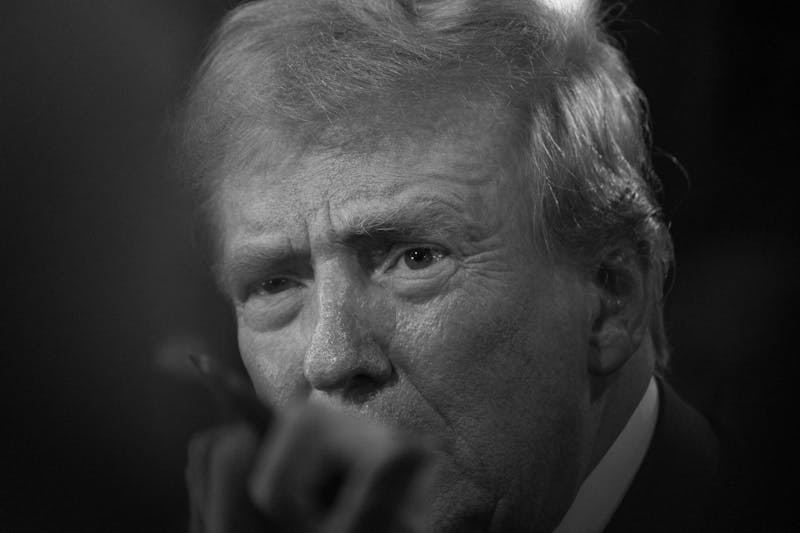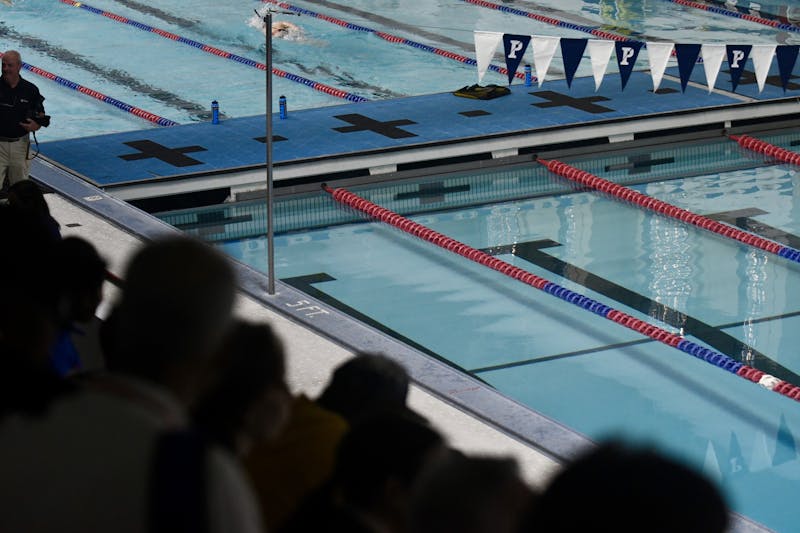Activists from Philadelphia's lesbian, gay and bisexual communities spoke on campus yesterday in a panel discussion focusing on the impact of race, ethnicity and class on sexuality issues and advocacy groups. The program, which was co-sponsored by the Greenfield Intercultural Center, the Program for Lesbian, Gay and Bisexual Community at Penn, and Lambda Grads, was organized by Wharton senior Alex Morua. Morua said he hoped the event would help people from different backgrounds find some similarities, while continuing to accept and celebrate their differences. The five panelists -- Scott Tucker, Rabbi Leila Berner, Aishah Simmons, Tyrone Smith, and Robert Vasquez-Pacheco -- related personal experiences in an effort to provide historical and political perspective on the gay rights movement for the two dozen people in attendance. Although all of the panelists serve in a professional capacity for organizations aimed at effecting social change, each emphasized in their remarks that they were not speaking for their employers. Tucker, who works with the AIDS Coalition to Unleash Power, spoke about individual identity as a "constellation" of characteristics, which makes definitive classification by race, ethnicity, sexual orientation and similar traits difficult. He added that he works for ACT UP because of its stand on the "radical cutting edge" of health care policy and its willingness to "tackle the whole political system." Berner, leader of Congregation Beth Israel, said although Judaism has always been centered on family, it is difficult for the Jewish world to redefine the idea of family, as evidenced by her congregation's "stereotypically liberal," overly-accepting reaction to her coming out. Berner also warned that "words and rhetoric" will not cause society to become accepting of people unlike them. Only exposure to those "other" people will eliminate "divisions, hatred and bigotry." Simmons works for the American Friends Services Committee, a Quaker organization aimed at achieving social justice. In an effort to avoid compartmentalization, she calls herself an "Afro-fem-centrist." Simmons stressed the importance of both intra- and inter-racial dialogue in resolving the conflict between media portrayals of homosexuals and the reality of life as a gay person. Smith founded Unity, an organization formed to address issues faced by African American gay men with AIDS. He explained that change begins with self-examination, adding that the gay liberation movement gains power from within the gay community. "It would be wonderful to live Martin [Luther King Jr.'s] dream, but we're not there yet -- we're still sleeping," he said, referring to the current state of tolerance in America for racial and sexual minorities. Vasquez-Pacheco, of the Minority AIDS Coalition, echoed Tucker's ideas about identity. "Organizing around one aspect of identity [such as sexuality] is ludicrous and doomed to failure because it ignores who and what you are," he said. Students asked the panelists about an array of topics, ranging from usage of the word "queer" to how best to alter the existing societal system, which is "oppressive" to homosexuals. According to the panelists, there has been an increased acceptance of gay people in recent years because of the emergence of the Civil Rights, Feminist and Gay Rights movements. Despite these advances, the members of yesterday's panel said they still feel "marginalized." This week's Bisexual, Gay and Lesbian Awareness Days programs represent an effort to change those feelings. Celebration of B-GLAD continues today, with a workshop on domestic partner benefits scheduled for noon in the Harrison Room of Houston Hall. A screening and discussion of films by African American lesbian filmmaker Cheryl Dunye will be held at 7:30 p.m. in Room 109 of the Annenberg School.
The Daily Pennsylvanian is an independent, student-run newspaper. Please consider making a donation to support the coverage that shapes the University. Your generosity ensures a future of strong journalism at Penn.
DonatePlease note All comments are eligible for publication in The Daily Pennsylvanian.







